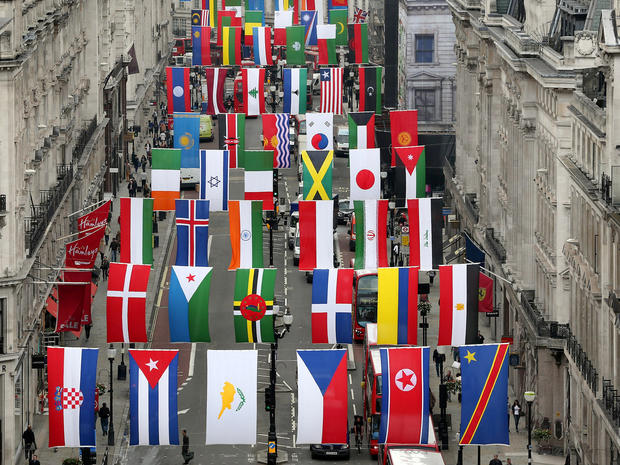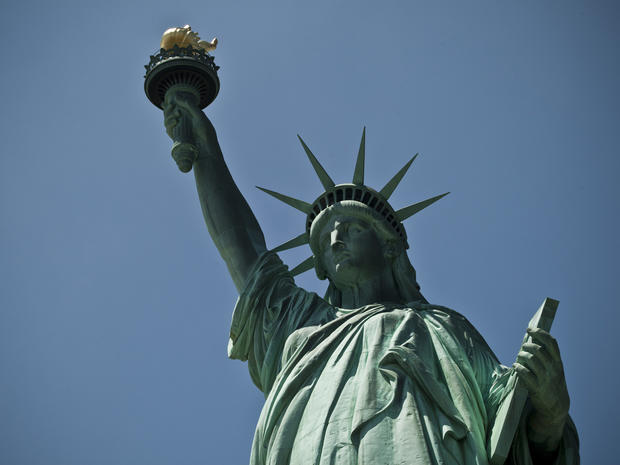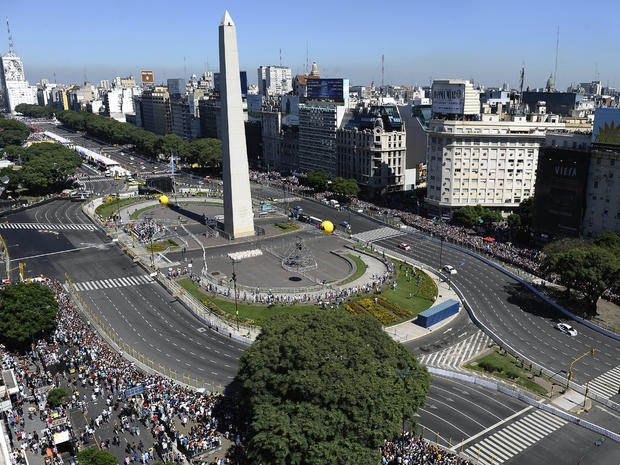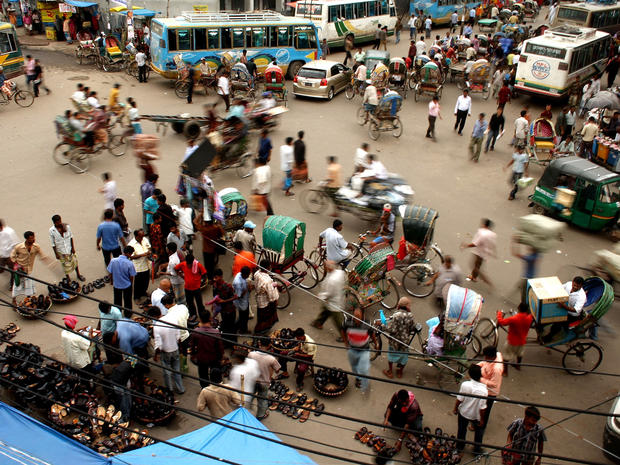Rating countries by business risk
As interconnected as the world's economies are, it will always be a fact of life -- and economics -- that some places are more risky to do business than others.
With that in mind FM Global , one of the world's largest commercial property insurers, has released its annual Resilience Index, a survey that ranks 130 countries by their business resilience. In particular, the survey examines supply chains and the risk of their disruption; a leading factor in business volatility.
"Natural disasters, political unrest and a lack of global uniformity in safety codes and standards all can have an impact on business continuity, competitiveness and reputation," Jonathan Hall, the company's executive vice president, said in a press statement.
This concern over business volatility has grown as economies have become more integrated and globalized -- and world events become chaotic.
"We live in a volatile world and whether that's because of what nature wrought or the human element, every nation is prone to some form of risk," Margareta Wahlström, United Nations Special Representative of the Secretary-General (SRSG) for Disaster Risk Reduction, noted on the FM Global web site.
"The question is why are some countries, whether developing nations or economic power houses, (are) more resistant to supply chain disruption or better able to bounce back?"
Norway
In its executive summary, FM Global notes that countries with strong economies, good infrastructure and what it calls a "high level of risk quality" -- meaning factors like advanced and enforced fire safety standards -- tend to score best in its Resilience Index.
That's why Norway was in the top slot for 2014. The country's North Sea energy supply, according to the survey, makes it "highly resistant" to the current energy supply and price roller-coaster. It also scored well for overall economic issues, per capita GDP, political stability and low in risk factors such as exposure to natural disasters.
(For the record, Switzerland was second in the rankings, followed by Canada.)
United States
Due it its size, the survey divided the U.S. into three separate regions.
U.S. Region One -- consisting of Texas, the Southeast, Mid-Atlantic and Northeastern states -- was ranked 18th in the Index. While the region scored well on supply chain factors such as infrastructure and local supplier quality, its exposure to natural disasters put it below the Index median.
U.S. Region Two -- Alaska, Hawaii, the West Coast and Nevada -- came in at number 21. The region has relatively strong economic scores and did well in overall supply chain issues. But its exposure to natural hazards like wind, floods and earthquakes put it near the bottom of the overall Index; 110 out of 130.
U.S. Region Three -- basically everywhere else not mentioned in Regions One and Two -- was ranked tenth; scoring well in overall economic, supply chain and risk quality factors.
Botswana
The landlocked, southern African nation was ranked 37th, ahead of countries like Mexico (59) and Brazil (49). While still an emerging economy with a relatively low per capita GDP, the survey says Botswana "finds a place in the top 50...owing to its political stability."
Argentina
Ranked 65th, the South American country came in at the Index median for its vulnerability to both political instability and "oil shock" -- that is, any sort of shortage, disruption or hike in energy prices -- as well as for per capita GDP.
Argentina's economy has been recovering steadily since its 2001-2003 debt crisis, but it has one of the world's highest inflation rates, which in turn has undermined industrial output, consumer spending and new investment there.
China
As in the case with the U.S., the index divided China into three separate regions -- which were ranked 61, 66 and 75. The weakest Chinese region, along its coastline, reportedly ranked low due to below-median numbers for control of corruption and poor risk quality regarding natural hazards.
Bosnia and Herzegovina
The country rose 19 places in the survey, to 94th on the list -- due to what the index called "significant improvements in political risk as well as in the quality of local suppliers." After a devastating war during the post-Tito breakup of Yugoslavia in the 1990s, Bosnia and Herzegovina has a growing private sector. And according the CIA Factbook the country's current economic priorities are strengthening its fiscal system, reforming government bureaucracy and accelerating its integration into the European Union.
Bangladesh
Bangladesh was ranked at 111 in the Index. Its low GDP, high vunerability to an "oil shock," as well as what FM Global described as a "declining quality of both natural hazard risk management and fire risk management," places Bangladesh towards the bottom of the Resilience Index







